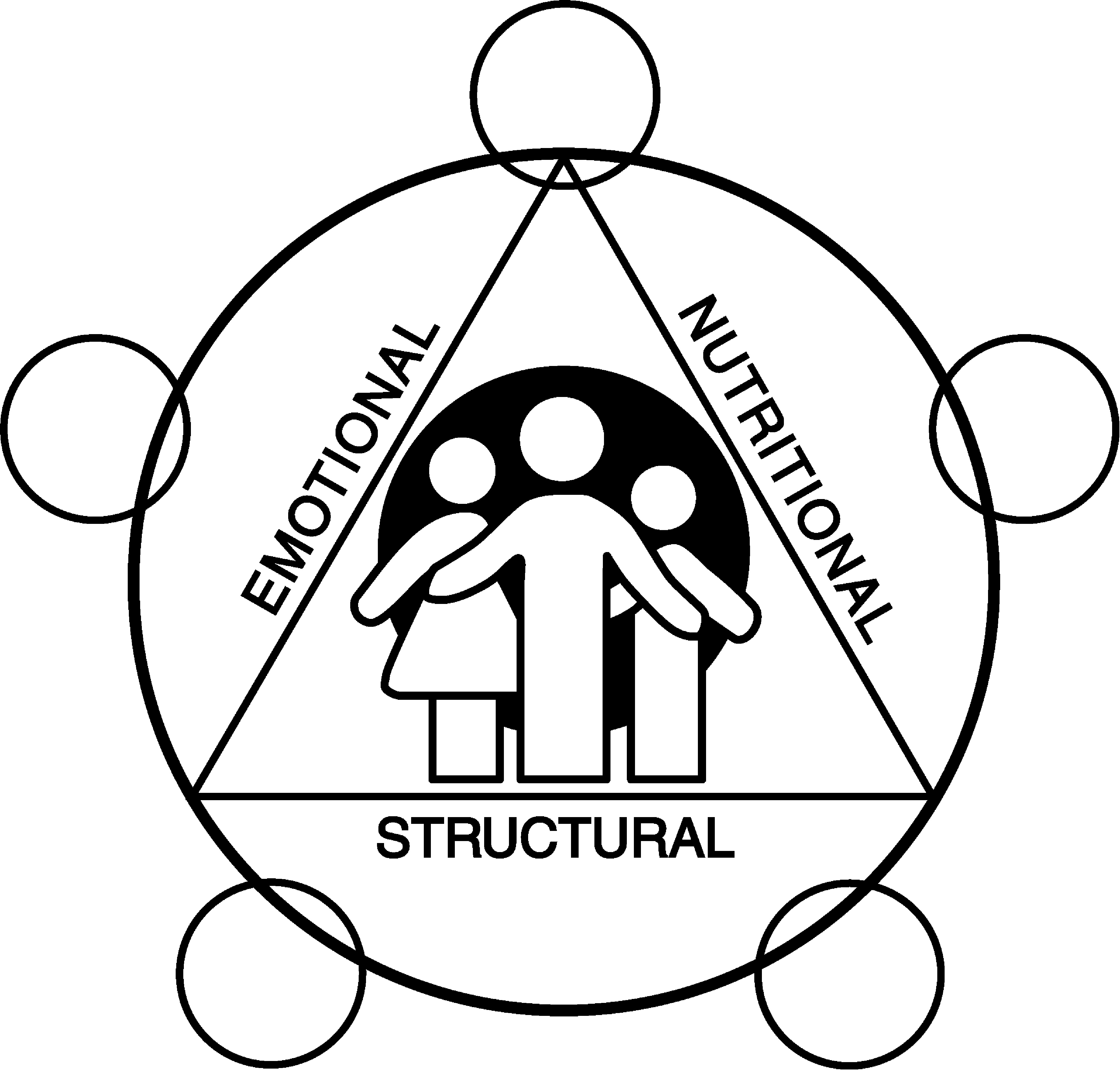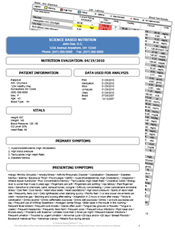What are processed meats?
Foods containing nitrites/nitrates or other preservatives and additives. Read your ingredient labels and look for “nitrite” or Sodium Phosphate, Sodium Erythorbate, and/or Sodium Nitrate. These ingredients are commonly found in pork products [ham, bacon, sausages], bologna, wieners, or any luncheon meat [beef, chicken, pork, turkey] containing additives or preservatives. Other sources are non-fat dried milk and smoked fish.
Why are these products considered to be harmful?
We are told that sodium nitrate is added to processed meats to protect consumers from botulism as well as to enhance a product’s taste and color. While nitrates themselves are harmless, they are readily converted to nitrites. When these nitrites combine with compounds called secondary amines, they form nitrosamines, extremely powerful cancer-causing chemicals. Nitrosamines lock into the DNA and form mutagens, promoting the development of cancer. Nitrosamines have been found to cause different types of cancer in animals, and since nitrosamines are metabolized the same in human and animal tissue, it is logical to assume that nitrosamine consumption carries the same risks for humans.
Nitrites have long been suspected as being a cause of colon and stomach cancer in adults, and they have also been linked with leukemia and ADD/ADHD in children. Between 1980 and 1987, a study was performed on the relationship between the consumption of certain foods and the risk of leukemia in Los Angeles children ages 10 and under. Results indicated that children that ate an excess of 12 hot dogs per month had nine times the normal risk of developing childhood leukemia. Similarly, it found that children whose fathers consumed 12 or more hot dogs per month were also at strong risk for childhood leukemia. Another study performed in Denver found that children whose mothers consumed one or more hot dogs per week during pregnancy had twice the normal risk of developing brain tumors and that children who consumed one or more hot dogs per week were also at higher risk of brain cancer.
Sources:
– The Linus Pauling Institute, Nitrosamine and Cancer, November 2000
– International Confederation of Dietetics Association, Stomach Cancer and Nutrition, 2003, Vol. 10 Issue 2
– Peters J, et al ” Processed meats and risk of childhood leukemia (California, USA)” Cancer Causes & Control 5: 195-202, 1994.
– Sarasua S, Savitz D. ” Cured and broiled meat consumption in relation to childhood cancer: Denver, Colorado (United States),” Cancer Causes & Control 5:141-8, 1994.
– Bunin GR, et al. “Maternal diet and risk of astrocytic glioma in children: a report from the children’s cancer group (United States and Canada),” Cancer Causes & Control 5:177-87, 1994.
Colon Cancer
Many risk factors contribute to the chance that one will develop colon cancer, the third most common cancer among men and women. However, researchers have concluded that a high intake of processed meat, defined as two or more ounces a day for women and three or more ounces a day for men, may be a major contributor. In a recent study, over 1,500 patients suffering from precancerous polyps of the colon (colorectal adenomas) were given a survey on their diet. They were examined again several years later to see if their polyps had returned. It was discovered that the patients who consumed diets higher in processed meats experienced a greater risk of the recurring polyps and that the patients with diets high in certain meats, like chicken, were less prone to recurrence. – Science Daily, Eating Chicken May Reduce Your Risk of Colon Cancer, December 21, 2005
In another study, nearly 150,000 adults ages 50 to 74 were asked to provide information regarding their meat intake in 1982, and again in 1992 or 1993. Results indicated that long-term consumption of high amounts of processed meats, such as hot dogs, increased the risk of colon cancer by nearly 50 percent. Further, researchers found that the more processed meats the people consumed, the greater their risk of developing diabetes. Just to give an idea of how big of an impact the consumption of processed meat has on one’s health, it was determined that an additional daily serving of processed meat raised the risk by 40 percent!
– Journal of the American Medical Association, Processed Meats Play Role in Developing Colon Cancer, January 12, 2005;293(2):172-182
– Archives of Alternative Medicine, Processed Foods, Meats Greatly Increase Diabetes Risk, Vol. 164 No. 20, November 8, 2004
How are nitrosamines formed?
The chemical reaction in which dangerous nitrosamines are formed most readily occurs at the high temperatures (exceeding 180 degrees Celsius) of frying, barbecuing, and grilling. The longer the meat is cooked, the greater the formation of nitrosamines. Here’s a little hint…can’t give up grilling? Add a dark green side salad, or a desert of berries and cherries. These foods have components in them that help to neutralize nitrosamines ( http://lpi.oregonstate.edu/f-w00/nitrosamine.html)
The Beef
One would think that after being educated on the health risks caused by the consumption of processed meats these products would no longer be considered safe, but based on available evidence to date, nitrite as used in meat and meat products is considered safe “because known benefits outweigh potential risks”. We want to know, according to whom? We do not feel that this logic is grounds for companies to continue to sell these products. Some manufacturers have asked themselves this very question and are finding alternative ways to protect the consumer from botulism and the like without the use of harmful nitrites. The reality is that we are not making sound decisions based on nutritional facts, and it is fact that processed meats are not safe.
– American Meat Institute, AMI Fact Sheet, November 2003
– Dietz & Watson, Nitrates and Nitrites, Vol. 5, December 2005
Some recommended alternatives
Poor choices include anything similar to popular commercial brand lunch meat, which contains the following ingredients: Mechanically Separated Turkey, Pork, Water, Corn Syrup, Dextrose, Flavor, Sodium Phosphate, Sodium Erythorbate, and Sodium Nitrate. Prices for a typical 16 oz. commercial brand product ranges from $2.69 to $2.89.
A healthier alternative is Applegate Farms Chicken Hot Dogs, which contain the following ingredients: Chicken, Water, Salt, Honey, Natural Spices, French Onion, Fresh Garlic, and Onion Powder. The typical 12 oz. Applegate Farms product can be purchased for about $3.89 for 12oz.
Shelton’s Chicken Wieners Ingredients: Mechanically Separated Chicken, Water, Sea Salt, Mustard, Spices. Price: 12oz $2.99
Look for nitrite-free lunch meats at some health food and grocery stores. Other ideas for lunch meat are to boil, slow cook, or use a pressure cooker to cook a whole chicken and use the meat throughout the week for sandwiches, chicken salad, etc.

